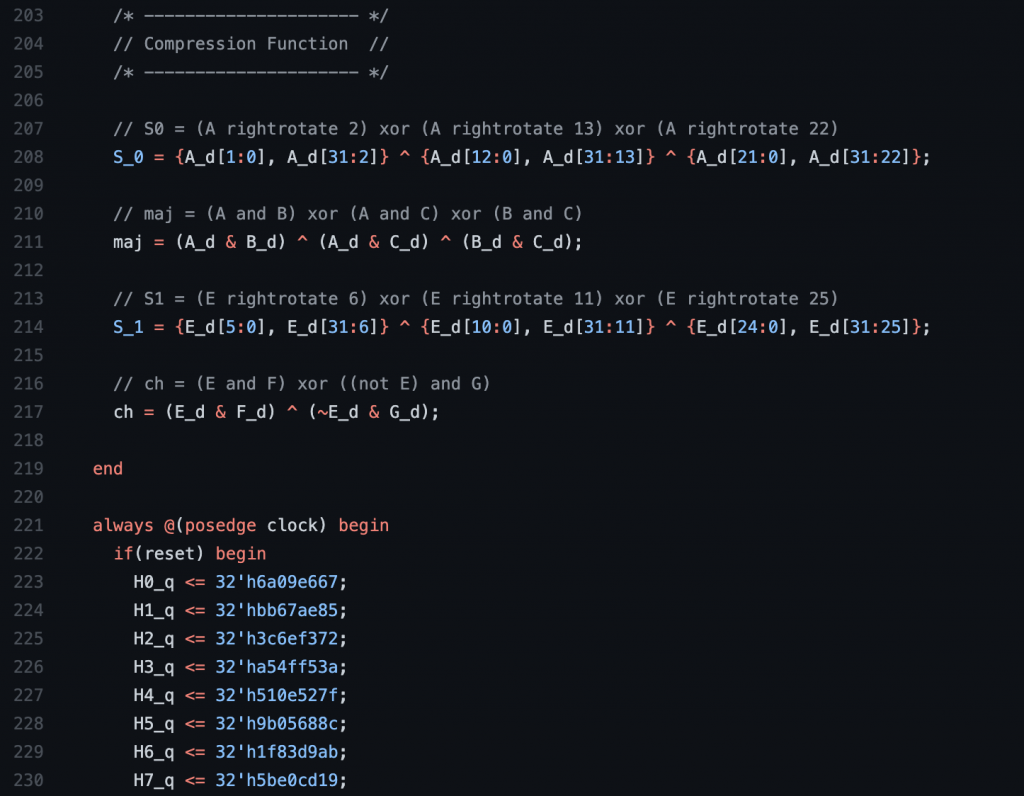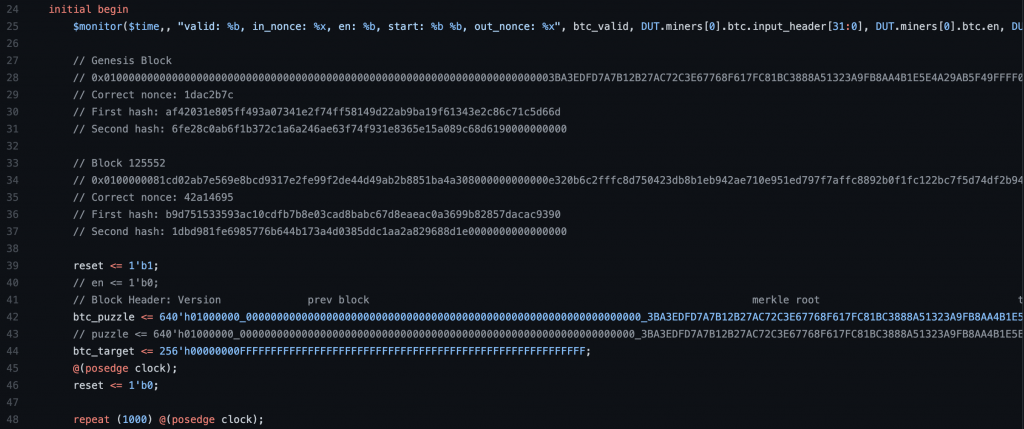This week, I finalized a lot of the FPGA modules that will be performing the mining and the communication. I researched an efficient way to perform SHA-256 hashing online and used the Wikipedia article on it to create my own implementation.

I then tested it with a SystemVerilog testbench to ensure it worked properly. For Bitcoin mining specifically, it requires the hash output to be hashed a second time. Thus, I created a pipeline structure that allows for this second hash to be computed while the first SHA-256 module moves on to the next nonce. This was also tested with an individual testbench.

The mining controller is now able to calculate the hash target based on the input puzzle and perform a comparison to check that the hash output is valid. Once the hash is valid, the nonce used to generate this hash is saved. On the communication side of the project, I implemented the FPGA out, Raspberry Pi in, communication module that sends the correct nonce to the RPi through GPIO. It serializes the data and sends the packet along with a header. This was tested as well.
With my work this week and last week, I am now on schedule with my assigned tasks. I caught up on work and will continue to work on the testing portion of the project phase.
Now that all the modules have been implemented and tested through VCS simulation testbenches, I want to move on to the next part of testing with synthesis. Next week I will be doing bug fixing on the FPGA files so that all of them will be synthesizable. Along with this, I will load the final design onto an FPGA and test whether the system as a whole works.
